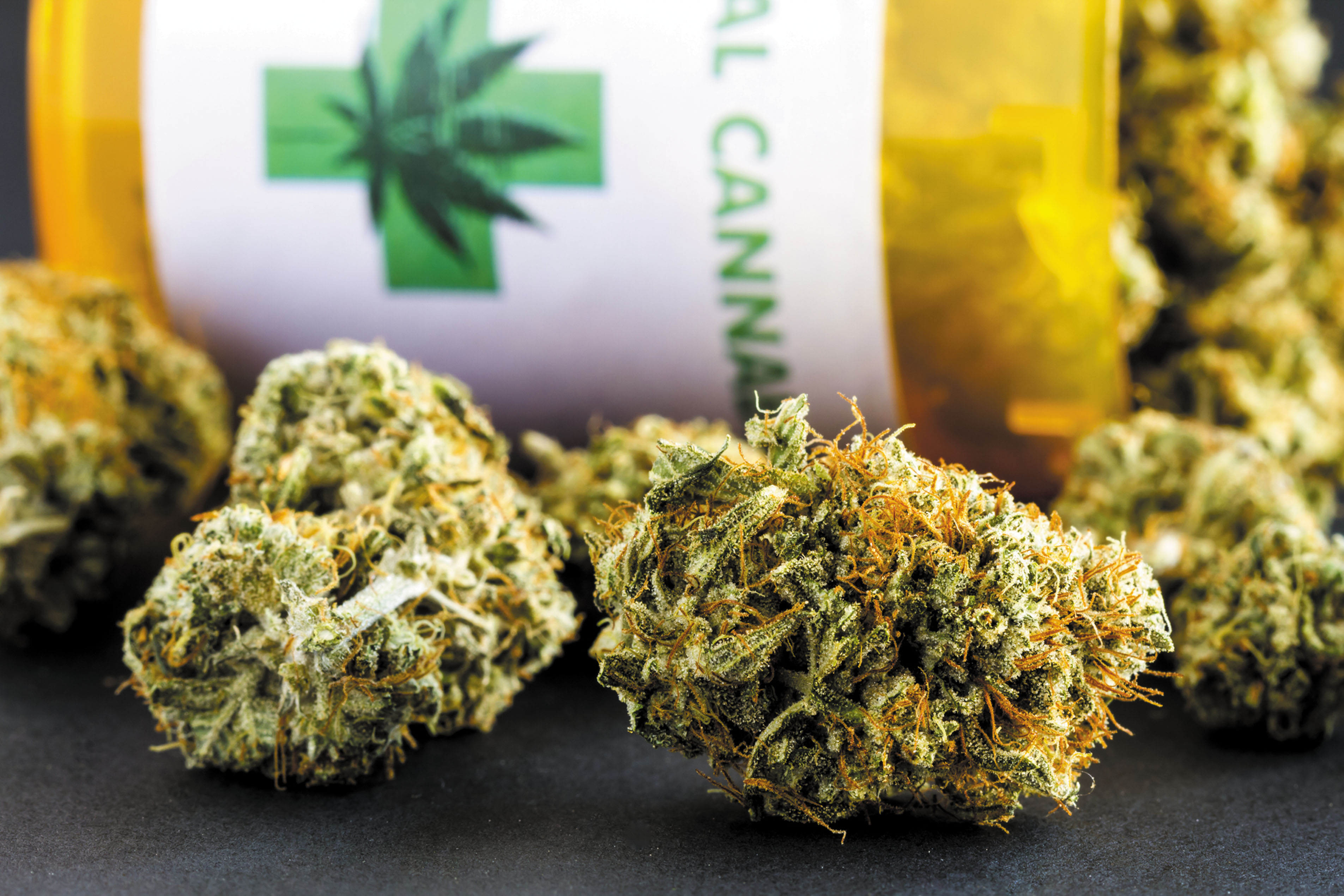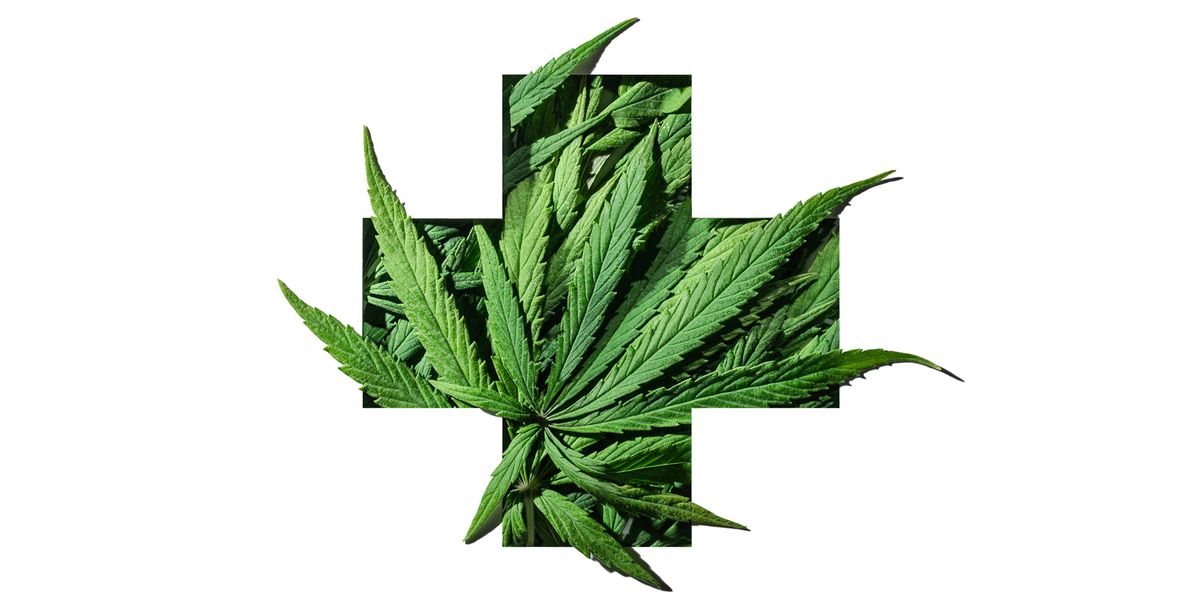Just How Clinical Cannabis Is Altering Pain Management Approaches in Medicine
Medical marijuana is reshaping exactly how we approach pain management in medicine today. Its one-of-a-kind communication with the body's endocannabinoid system supplies new avenues for alleviation, specifically for chronic pain sufferers. As more people seek choices to conventional drugs, it is critical to explore the benefits and challenges this change provides. What ramifications does this have for personalized therapy choices and person care? Let's examine the evolving landscape with each other.
Recognizing Medical Cannabis and Its Elements
Medical cannabis is an effective device suffering management, thanks to its unique elements. You'll discover that it includes different cannabinoids, like THC and CBD, which communicate with your body's endocannabinoid system. THC, or tetrahydrocannabinol, is understood for its copyright effects and can help in reducing pain perception while promoting relaxation. On the other hand, CBD, or cannabidiol, provides pain alleviation without the high, making it an eye-catching choice for those that prefer to prevent psychoactive impacts.
In addition to cannabinoids, terpenes play a substantial function in the therapeutic effects of marijuana. By understanding these elements, you can make enlightened choices about using medical marijuana for pain monitoring, customizing your approach to match your certain requirements and preferences.

The Science Behind Cannabis as a Painkiller
While many individuals look for alternative discomfort relief approaches, the scientific research behind marijuana reveals its performance as an all-natural analgesic. Cannabis consists of cannabinoids, such as THC and CBD, which interact with your body's endocannabinoid system. This system plays an essential function in controling discomfort, inflammation, and mood. When you take in cannabis, these cannabinoids bind to receptors in your mind and immune system, assisting to modulate discomfort understanding.
Study reveals that marijuana can minimize persistent discomfort, making it specifically helpful for problems like joint inflammation, fibromyalgia, and neuropathic pain. Additionally, the anti-inflammatory residential or commercial properties of CBD can alleviate discomfort without the copyright effects associated with THC. This dual action makes marijuana a versatile alternative for many pain management strategies. By understanding these devices, you can value how marijuana not just changes the pain feedback yet additionally enhances your total well-being, providing an all natural approach to discomfort relief.
Comparing Cannabis With Standard Pain Monitoring Options
When thinking about pain relief, you may wonder just how cannabis stacks up against conventional options like nsaids or opioids. While marijuana has shown encouraging efficiency in managing pain, it's vital to weigh its advantages against potential negative effects. Allow's explore just how these 2 strategies compare in your pain administration trip.
Efficiency of Cannabis
Just how does marijuana pile up against standard pain management alternatives? Many individuals find marijuana to be reliable in relieving persistent discomfort, usually citing its ability to lower pain without the requirement for opioids. Research shows that marijuana can target certain discomfort paths, giving alleviation for problems like arthritis and neuropathy. Unlike traditional medicines, which may include a long list of side effects and dependence issues, cannabis provides a various approach that some individuals choose. You might notice that while opioids can plain pain, marijuana has a tendency to boost your general experience by enhancing state of mind and sleep. This multifaceted effect makes marijuana an enticing alternative for numerous, particularly those seeking an extra all-natural remedy in their pain administration journey.
Negative Effects Comparison
Although standard discomfort monitoring options like opioids and nonsteroidal anti-inflammatory medicines (NSAIDs) are widely used, they usually feature a series of negative effects that can affect your top quality of life. Opioids can lead to dependency, queasiness, and constipation, while NSAIDs might cause intestinal concerns and cardiovascular risks. In contrast, clinical cannabis often tends to have a different adverse effects profile. While you could experience dry mouth, wooziness, or fatigue, these results are normally less serious than those related to opioids. Numerous customers report that cannabis gives effective discomfort relief without the threat of addiction. By comparing these options, you can make an extra informed choice concerning your pain management technique, weighing the advantages and drawbacks of each approach (Kentucky Medical Marijuana Doctor).
Client Experiences: Success Stories and Testimonials
Numerous clients like you have located alleviation through clinical cannabis, sharing inspiring stories of their recovery journeys. These reviews highlight not simply discomfort relief, yet a makeover in their overall lifestyle. You have actually got the opportunity to discover these effective experiences and see exactly how marijuana may fit right into your very own pain monitoring weed dispensary danville illinois strategy.
Personal Healing Journeys
As people look for relief from chronic pain, numerous recovery trips highlight the transformative power of medical cannabis. You might hear concerning those that have actually switched standard medicines for marijuana, experiencing less side results while taking pleasure in improved capability. Your journey might mirror their own, filled with opportunities and renewed toughness as you check out the recovery capacity of clinical marijuana.
Transformative Pain Relief
The tales of people locating alleviation via medical marijuana illustrate its possible for transformative pain relief. You may hear from somebody who battled with persistent back pain for several years, only to discover that a details pressure of cannabis considerably lowered their discomfort. An additional individual could share how, after battling migraine headaches, they found that a cannabis-infused oil not only eased their discomfort but boosted their general lifestyle. These testimonials highlight a typical motif: the capacity to reclaim daily activities once hindered by pain. People often report fewer adverse effects contrasted to typical medicines, bring about a newly found feeling of liberty. As these experiences spread out, more people are checking out clinical marijuana as a sensible alternative for managing their pain efficiently.
Legal Landscape and Access of Medical Cannabis
While maneuvering the evolving landscape of clinical cannabis can be difficult, understanding the lawful structures and availability choices is vital for clients seeking relief. Legislations vary significantly from one state to another, so it's vital to familiarize on your own with your neighborhood policies. Some states have legalized medical cannabis completely, while others may still enforce restrictions or not enable it at all.
To access clinical cannabis, you generally need a suggestion from a licensed doctor, highlighting the significance of finding a medical professional well-informed about marijuana treatments. As soon as you acquire a recommendation, you can get a medical cannabis card, which provides you access to dispensaries.
Bear in mind that even in states where marijuana is legal, there might be limitations on the sort of items available, along with amount limitations. Staying informed about these regulations can empower you to maximize the benefits medical marijuana needs to supply.
Obstacles and Factors To Consider in Integrating Marijuana Into Treatment

Additionally, there's the issue of possible side results, which can range from light to severe. You'll additionally face the preconception surrounding marijuana usage, both from doctor and patients, which might prevent open conversations concerning treatment options. Ongoing research study is required to comprehend the lasting impacts and efficacy of marijuana in discomfort administration. These considerations emphasize the requirement for health care experts to remain informed and strategy cannabis combination thoughtfully.
The Future of Pain Monitoring: Forecasts and trends
As healthcare remains to evolve, pain administration is set to go through significant makeovers that might improve treatment techniques. You'll likely see a change towards even more individualized medication, where treatments are tailored to your one-of-a-kind hereditary makeup and particular pain problems. Medical cannabis is expected to play an important duty in this evolution, providing more secure options to opioids and decreasing dependancy on conventional painkillers.
Telemedicine will certainly additionally end up being a lot more prevalent, permitting you to speak with experts from the convenience of your home. This benefit can boost accessibility to discomfort administration resources and support. Furthermore, improvements in innovation, such as wearable tools, will allow real-time surveillance of discomfort levels, empowering you to handle your problem better.
As research study remains to validate the advantages of medical cannabis, you can expect extra healthcare providers welcoming these therapies, ultimately leading to improved end results and quality of life.
Frequently Asked Questions
What Are the Possible Side Results of Medical Cannabis for Discomfort Administration?
When using medical marijuana for pain administration, you might experience adverse effects like wooziness, completely dry mouth, tiredness, or changes in cravings. If needed., it's important to check just how your body reacts and consult your health care company.
Exactly How Is Dosage Determined for Medical Cannabis in Discomfort Treatment?
When identifying dosage for medical cannabis, you think about factors like your weight, pain extent, and individual resistance. It's crucial to begin reduced and slowly increase till you discover the most reliable dose for your demands.

Can Medical Marijuana Interact With Other Drugs?
Yes, clinical cannabis can interact with various other medicines. It's vital to discuss your current prescriptions with your doctor to prevent possible adverse effects or decreased performance of your treatments while making use of cannabis.
Is Medical Marijuana Effective for All Kinds Of Pain?
Medical marijuana isn't efficient for all kinds of discomfort. It might aid with persistent pain, yet responses differ. You should consult a medical care specialist to identify if it appropriates for your particular problem.
What Are the Expenses Connected With Medical Marijuana Therapy?
When taking into consideration clinical cannabis treatment, you'll discover expenses vary widely. Expenses consist of consultations, product costs, you could try this out and potential insurance policy protection. It's vital to study and budget accordingly for an extensive understanding of your economic dedication.
Medical cannabis is reshaping exactly how we approach pain management in medicine today. By understanding these elements, you can make educated choices concerning making use of clinical cannabis for discomfort management, tailoring your method to match your specific demands and choices.Research shows that marijuana can lower persistent pain, making it specifically beneficial for problems like joint inflammation, fibromyalgia, and neuropathic discomfort. By recognizing these mechanisms, you can appreciate just how marijuana not just changes the discomfort response but likewise boosts your total health, supplying an all natural strategy to pain relief.
What Are the Prospective Side Impacts of Medical Cannabis for Pain Monitoring?